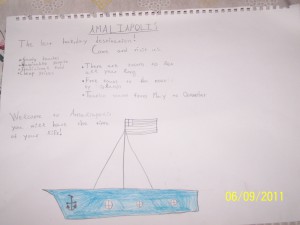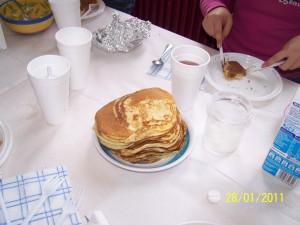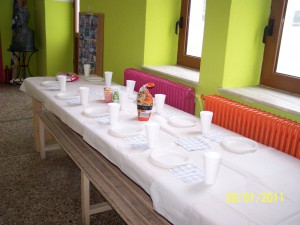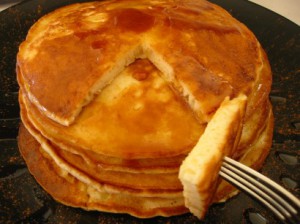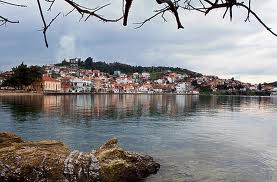Με μεγάλη επιτυχία πραγματοποιήθηκαν και φέτος οι σχολικοί αγώνες των Δημοτικών Σχολείων Σούρπης και Αμαλιάπολης τη Δευτέρα 21/5/2012 στο Αθλητικό Κέντρο Σούρπης.
Οι μαθητές – μαθήτριες, με την καθοδήγηση της εκπ/κού Φυσικής Αγωγής Παντελίδου Μαρίας, συμμετείχαν σε ποδοσφαιρικούς αγώνες 5χ5 και στα παρακάτω αγωνίσματα στίβου: 50 μ. (αγοριών – κοριτσιών ), 1000 μ (αγοριών – κοριτσιών ), μπαλάκι (αγοριών – κοριτσιών ), άλμα σε μήκος (αγοριών – κοριτσιών ).
Τα αποτελέσματα των αγώνων:
ΣΤΙΒΟΣ
50 μ. αγοριών: 1. Κοκομέτσι Τζενίς, 2. Δημητρίου Γεώργιος 3. Ρεπάκης Ευστράτιος
50 μ. κοριτσιών: 1. Κορέτα Αναστασία 2. Ντούκα Αναστασία 3. Τάτση Άννα
1000μ αγοριών: 1. Ρεπάκης Αλέξανδρος 2. Λογοφέτοβ Χρήστος 3. Ξάνθης Χρήστος
1000μ κοριτσιών: 1. Μπατσκίνη Μαρία 2. Ξάνθη Μαρία 3. Κορέτα Αναστασία
Μπαλάκι αγοριών: 1. Λογοφέτοβ Χρήστος 2. Λογοφέτοβ Τσέτσι 3. Κοκομέτσι Τζενίς
Μπαλάκι κοριτσιών: 1. Ξάνθη Ελένη 2. Ξάνθη Μαρία 3. Κεχαγιά Ελένη
Μήκος αγοριών: 1. Κοκομέτσι Τζενίς 2. Λογοφέτοβ Χρήστος 3. Ρεπάκης Ευστράτιος
Μήκος κοριτσιών: 1. Κορέτα Αναστασία 2. Χρυσικού Ιωάννα 3. Τάτση Άννα
ΠΟΔΟΣΦΑΙΡΟ 5Χ5
ΑΓΟΡΙΩΝ: ΔΗΜΟΤΙΚΟ ΑΜΑΛΙΑΠΟΛΗΣ – ΔΗΜΟΤΙΚΟ ΣΟΥΡΠΗΣ: 6 – 2
ΚΟΡΙΤΣΙΩΝ: ΔΗΜΟΤΙΚΟ ΑΜΑΛΙΑΠΟΛΗΣ –ΔΗΜΟΤΙΚΟ ΣΟΥΡΠΗΣ: 2 – 0


